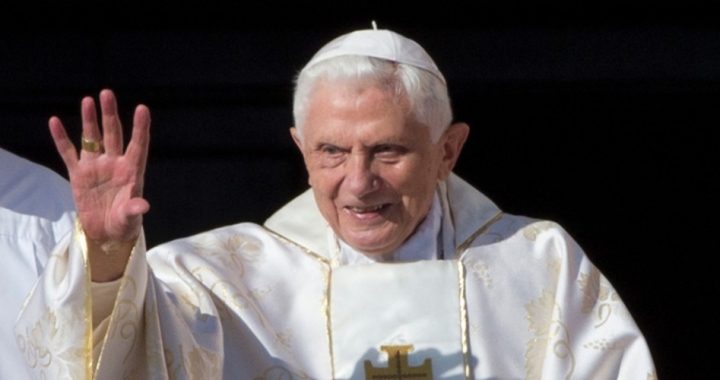
“It could be said that in the 20 years from 1960 to 1980, the previous normative standards regarding sexuality collapsed entirely, and a new normalcy arose that has by now been the subject of laborious attempts at disruption,” wrote Joseph Ratzinger, the retired Pope Benedict XVI, in an essay of 6,000 words, published Thursday in the German monthly Klerusblatt and in the Catholic News Agency.
The former pope’s essay was an analysis of the causes of the sexual abuse scandal that has rocked the Roman Catholic Church in recent years in several countries, including Ireland, Chile, Australia, France, and the United States. The effects of the scandal have been enormous, including a swing away in devotion to the Catholic Church in Ireland, which helped to flip that nation from a pro-life country on the abortion issue to a nation that ignored the teachings of the church to pass laws legalizing the grisly practice. The church has paid out billions of dollars in compensation to victims, even forcing the closing of some parishes.
Benedict became pope in 2005, but abruptly retired in 2013, citing physical weakness associated with his advanced age. Benedict will turn 92 next week. His replacement, Pope Francis, has adopted a much less conservative stance on many issues, but Benedict has remained largely silent on the various issues that concern the Catholic faith, including the sexual abuse scandal.
In an essay that was cleared by Pope Francis and the Vatican’s secretary of state, Benedict listed three main causes of the scandal — the effects of the “sexual revolution” of the 1960s, homosexual cliques in Catholic seminaries, and a general collapse of morality.
“Why did pedophilia reach such proportions?” Benedict asked in his essay. “Ultimately, the reason is the absence of God.”
But he also took aim at the formation of “homosexual cliques,” which he charged “acted more or less openly and significantly changed the climate.”
He added, “Perhaps it is worth mentioning that in not a few seminaries, students caught reading my books were considered unsuitable for the priesthood.”
A prolific author, and highly regarded theologian while he was Cardinal Ratzinger, Benedict wrote books that were quite popular with the Catholic faithful, and were also read widely by many Protestants. Among his many books were works dealing with doctrine (such as Eschatology: Death and Eternal Life and Salt of the Earth: The Church at the End of the Millennium); on practical advice for the clergy (such as Teaching and Learning the Love of God: Being a Priest Today); devotional books (such as Seek That Which is Above: Meditations Through the Year); and current issues (such as Without Roots).
He was originally regarded as somewhat of a liberal theologian, but he became increasingly conservative. While pope, Benedict promoted fundamental Christian values to counter what he regarded as secularization in the West. He considered the denial of moral truths as the central problem in the 21st century.
Despite his books enjoying wide popularity among the laity, Benedict expressed his disappointment at how his works were treated in the seminaries. “My books were hidden away, like bad literature, and only read under the desk,” he lamented.
Benedict argued in his essay that church laws gave too much protection to accused priests, writing that “the right to a defense [for priests] was so broad as to make conviction nearly impossible.”
Before he took on the papal office, Benedict was a leader to make it easier to remove priests who abused children. Later, while leading the Vatican’s doctrinal office, he took a hard line against sex abuse by priests, when the first cases in Boston became public in 2002. As pope, he took action against pedophile priests — action that had been blocked while John Paul II reigned as pope.
Not unexpectedly, some took exception to Benedict’s hard-hitting essay. Christopher Bellitto, for example, a church historian, argued that the abusive priests were from across “the ideological spectrum,” and that the abuse was occurring long before the sexual revolution of the 1960s. Bellitto challenged the charge that pedophilia was mostly a homosexual problem.
“It is catastrophically irresponsible, because it creates a counter-narrative to how Francis is trying to move ahead based on the 2019 summit,” Bellitto told the Associated Press.
Others, however, contend that Benedict’s essay is more accurate in its diagnosis of the problem. While there has no doubt been some sexual abuses in the Catholic Church for centuries, it is probable that a more lenient stance toward sexual sin not only in the Catholic Church, but in Protestant Christianity and the culture in general, has greatly increased the severity of the problem.
Photo of retired Pope Benedict XVI: AP Images



